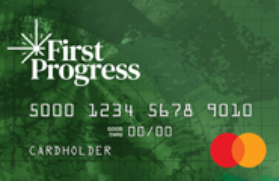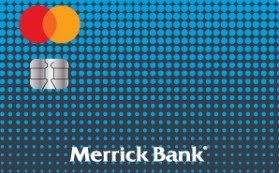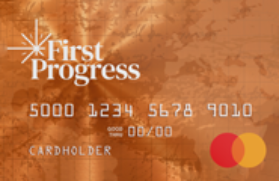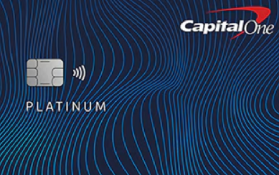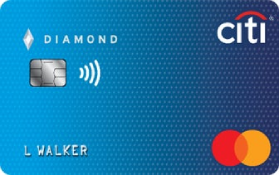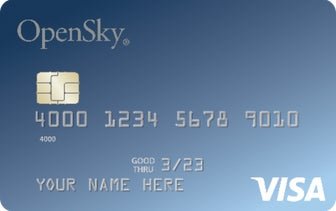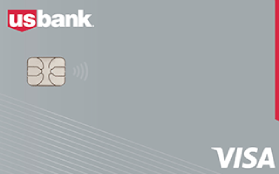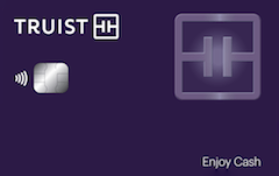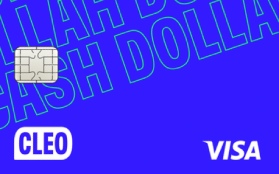Best Secured Credit Cards
If you've got a poor credit score or no credit history, a secured credit card can help you build or rebuild your credit profile and improve your FICO score. You pay the card issuer an upfront deposit equal to your card's credit limit that acts as collateral if you default on monthly payments.
Your credit card issuer reports card activity to credit bureaus, which helps you improve your credit score if you make on-time monthly payments. Your security deposit is fully refundable if you remain responsible, pay your balance in full, and close your account in good standing, or upgrade to an unsecured card.
We've compiled a list of the best secured credit cards so that you can choose the one that best fits your needs.
Short Review of Best Secured Credit Cards
| Name | Best for | Rewards Rate | APR | Apply |
|---|
First Progress Platinum Prestige Mastercard® Secured Credit Card | | 1% Cash Back rewards on payments. | 14.24% Variable | Apply now On First Progress’s site |
Merrick Bank Secured Credit Card | | This card doesn't offer cash back, miles or points. | 22.70% Variable | Apply now On Merrick Bank‘s site |
First Progress Platinum Select Mastercard® Secured Credit Card | | 1% Cash Back on payments made to your First Progress Secured credit card account. | 18.24% Variable | Apply now On First Progress’s site |
Capital One Platinum Secured Credit Card | Single mom, Without SSN | This card doesn't offer cash back, miles or points. | 29.99% Variable | Learn more |
| First time applicants | This card doesn't offer cash back, miles or points. | 26.74% Variable | Learn more |
Capital Bank OpenSky® Secured Visa® | 18 year old | This card doesn't offer cash back, miles or points. | 25.64% Variable | Learn more |
U.S. Bank Secured Visa Card | Secured | This card doesn't offer cash back, miles or points. | 28.24% Variable | Learn more |
Who should apply
Capital One Platinum Secured Credit Card
One feature that makes the Capital One Platinum Secured Mastercard® Credit Card stand out is its low deposit requirement. Depending on where Capital One sets your minimum deposit, you could get the card for as little as $49.
That makes the card a good fit for borrowers who want to build or rebuild credit but don't have a lot of cash to pay a higher security deposit. Again, the card doesn't charge foreign transaction fees, which makes it a great choice if you plan to make purchases outside the U.S.
Read more about Capital One Platinum Secured Credit Card
Citi Secured Mastercard®
The Citi Secured Mastercard® doesn't require users to have a past credit history, making it a great choice for someone who wants to build credit from scratch.
As long as you can pay your monthly bill on time and avoid the high APR or the penalty APR, this card can help you establish credit because card activity is reported to all three bureaus.
However, the card comes with a 3% foreign transaction fee, so try to avoid purchases outside the U.S. or on foreign websites.
Read more about Citi Secured Mastercard®
Capital Bank OpenSky® Secured Visa®
The card doesn't require a credit check to apply and has a low APR. Thus, it can be a good choice for borrowers with poor credit or no credit who want to benefit from a lower interest rate.
As long as you can spend $3,600 annually to justify the fee, this card will work for you and help you improve your credit score faster as card activity is reported to all three major bureaus.
Read more about Capital Bank OpenSky® Secured Visa®
U.S. Bank Secured Visa Card
The US bank Secured Visa® card offers a higher credit limit of up to $5,000 and may be a good choice for those who want to access higher credit limits while building credit.
So if you've got the cash to put down a higher deposit, you can get a higher credit line with this card. However, the card comes with several fees which you need to avoid lest they increase the card’s cost.
Read more about U.S. Bank Secured Visa Card
What is a secured credit card
A secured credit card is a line of credit that requires the applicant to put down a security deposit with the issuing company. It's meant to help people with poor credit or those with no credit history to improve their credit score so that they may qualify for an unsecured credit card or other types of loans in the future.
With most card issuers, the security deposit paid determines your credit limit, though a few may allow you to borrow more depending on the issuer’s assessment of your creditworthiness. The security deposit is fully refundable, but the issuer needs it to act as collateral. In case you default on your monthly payments, the issuer can use the deposit to cover the bill.

However, if you show responsible credit behavior, and you close the account in good standing or upgrade to an unsecured credit card, the deposit is fully refundable.
To help you build credit, the card issuer reports your account activity to the credit bureaus. Thus, it is vital that you make your monthly payments on time and in full so that you can improve your credit score faster.
How to get a secured credit card
Since a secured credit card requires a security deposit that acts as collateral, getting one is easier than getting an unsecured credit card.
Here is how you get a secured credit card:
- Apply: You can do this by visiting the issuing bank or credit union, or online through the financial institution’s website. Then, you will fill out an application form disclosing information such as: your name, address, social security number, income, employment status, and more.
- Wait for approval: The issuer performs an underwriting process to build your risk file and determine your creditworthiness. If you meet their minimum requirements, your application is approved and you can go ahead to make the minimum security deposit.
- Make a cash deposit: You’ll be required to make a security deposit equal to your card’s credit limit. How much you need to pay varies by company, but most issuers have a $200 to $300 minimum deposit for an equal credit line. You can increase your credit limit up to the issuer's allowable maximum deposit.
- Get your card: Once you’ve paid the security deposit, your account is opened. The issuer sends you the credit card via mail. You can also pick it up at your local branch. The card comes ready to use, and you can start using it immediately after activation.
How to choose a secured credit card
A secured credit card can help you build credit and improve your credit score. Thus, you should choose a card bundled with features that enable you to achieve exactly that.
The top things to look into when choosing the best secured credit card include:
- Credit reporting: Equifax, TransUnion, and Experian are the major credit bureaus. To boost your credit score faster, make sure the issuer reports to all the three major credit bureaus.
- Affordable security deposit: Choose a credit limit that’s affordable to you or work with an issuer that allows you to fund your security deposit in installments.
- Fees charged: Choose a secured credit card with fewer to no fees. Cards that charge several fees may increase your card costs and make it harder for you to meet your obligations to the issuer. If possible, go for a card with a $0 annual fee and no foreign transactions fees.
- A path to upgrade: Issuers who perform automatic credit reviews of your account are the best because you may not only get your deposit back within a short period but also start enjoying more perks with an unsecured credit card.
- Variable APR: Going for a card with a lower variable APR is an advantage as you can save money on interest in the long run. But since you aim to build credit, you should focus on paying your balance in full every billing cycle. As long as you can pay your balance in full, you won't have to worry much about the APR.
- Rewards: Most secured credit cards don't offer cash back rewards. It’s good to earn something back on your spending, but that shouldn't be your focus. Instead, choose a card that helps you build credit faster so that you can qualify for a rewards credit card.
How to use your secured card to build credit
Using your secured credit card responsibly is the way to go so that you can build credit faster and boost your FICO score. Here’s how to do it:
- Pay your balance in full: Each billing cycle, you’ll receive your monthly bill from the issuer. If possible, make sure you pay off the balance in full. It will not only help you build credit faster, but also slash interest costs.
- Make on-time payments: Whether you pay in full or just make the minimum monthly payments, make sure you pay before the due date on your monthly statement. Otherwise, you will be hit with late payment fees and your credit score will dip.
- Avoid failed payments: If you set up autopay, ensure there’s enough money in your account to cover your monthly bill. Failed or returned payments come with extra fees and will impact your credit score negatively.
- Don't max out your card: Keep credit utilization below 30%. You can do that by keeping a higher deposit than the issuer’s set minimum deposit. For instance, you can keep a deposit of $500 and only charge $150 on the card each month.
- Monitor your account: Keep an eye on how your credit score is improving. Most issuers allow you to monitor your progress through their mobile app, online banking, or by setting up email and text alerts to receive important updates.
How to upgrade to an unsecured credit card
After several months of good credit behavior, your credit score should improve. That means you may be ready to upgrade to an unsecured card that offers more perks than what you can get with a secured credit card.
Here’s how to upgrade to an unsecured credit card:
- Automatic upgrade: Some card issuers, like Discover, perform automatic periodic reviews of your credit card account and your credit score changes. In that case, your account might be upgraded into an unsecured credit card if the issuer is satisfied with your credit behavior.
- Ask for an upgrade: If your issuer doesn’t advertise automatic upgrades within a specific period, consider asking for an upgrade either by calling or visiting the nearby branch. They will review your credit history and behavior and if you qualify, get your account upgraded to an unsecured credit card.
- Apply for a new card: This is a good option if the card you’ve been upgraded to doesn't offer the perks you’re looking for. Shop around for a rewards card that fits your spending style. You can also go this route if you’re confident your score has improved enough but your issuer refuses to upgrade your account.
- Decide the fate of your secured credit card: Keeping the card open is good for maintaining a lengthy credit history, but if your secured card has recurring fees, like an annual fee, you may have no other choice but to close it altogether.
Alternatives to secured credit cards
If you don't qualify for a secured credit card, or don't have enough cash to put down a security deposit, there are several secured credit card alternatives to look into. Some will help you build credit, but others will just give you the convenience and safety of a cashless payment method.
They include:
- Unsecured credit card for bad credit: Some issuers use alternative data to offer unsecured credit cards to customers with fair or even poor credit. The downside is, these cards come with high APRs, multiple fees, and limited rewards categories. The First Premier Bank Credit Card, the Horizon Gold Card, the Total Visa® Card, and Credit One credit cards are good examples in this category.
- Credit builder loans: Credit builder loans are meant to help you build a good repayment history. The lender holds the borrowed amount in a savings account until you're done paying the monthly installments. The money is then released to you, and the lender reports it as a paid-off loan to the credit bureaus.
- Passbook loan: If you have money in a savings account, you can borrow against it to build credit. Depending on the lender, you may be able to borrow 50% to 100% of your savings. Repayments are then reported to the credit bureaus to help improve your credit score.
- Personal loans: With the rise of online lenders, it's possible to get a personal loan with fair to good credit. A few may be willing to welcome borrowers with poor credit, but you'll have to contend with high interest rates, low credit limits, and fees. Alternatively, you can opt for secured personal loans if you're willing to attach a valuable asset like your car or house as a lien to secure the loan.
- Guarantor loan: Both traditional and online lenders allow co-signed loans for people with bad credit. So if you have a friend or family member with a better credit score than yours, you can talk to them to guarantee your loan and tilt approval odds in your favor.
- Prepaid debit cards: A prepaid debit card won’t help you build credit, but can help you add an extra security buffer to your hard-earned money when shopping online or in-store. You load money into the card, and then use it to make purchases. Since you aren't borrowing the money from an issuer, card activity has no impact on your credit score.
- Debit cards: Unlike a credit card that borrows money from the issuing bank to cover purchases, a debit card draws money directly from your checking account to cover the bill anytime you shop online or check out a retail location. Unfortunately, they can’t help you build credit.
FAQ
What are other credit cards to consider?
If the secured credit cards on our list don't appeal to you, you’ve got a few more options. Other secured credit cards to consider include:
- Harley-Davidson Visa Secured Card
- Navy Federal Credit Union nRewards Secured Credit Card
- Chime Credit Builder Visa® Secured Credit Card
- Bank of America Customized Cash Rewards Secured Credit Card
- Capital One Quicksilver Secured Cash Rewards Credit Card
How fast will a secured card build credit?
How fast your secured credit card will build credit depends on how and where the issuer reports your repayments activity, your overall credit history before getting the card, and how responsibly you use the card.
Generally, you should allow six to eight months of responsible credit behavior to start seeing a significant improvement in your credit score.
What is the difference between secured and unsecured credit cards?
Secured credit cards require the borrower to put down a refundable security deposit as collateral, while unsecured ones don't. For a secured credit card, the security deposit determines your credit limit, while in an unsecured one, your credit limit is determined by your credit score.
Again, secured credit cards are meant to help borrowers build or rebuild credit, while unsecured ones are meant for people with good to excellent credit scores looking to earn rewards on purchases. That’s why unsecured credit cards come with more perks than secured ones.
How many secured credit cards should I have to rebuild my credit?
Having one secured credit card may be enough to help you rebuild credit. After all, rebuilding credit doesn't depend on the number of cards you have, but how responsibly you use the card.
That said, there’s no harm if you get an extra one from a different credit card issuer. For instance, you can get one from Amex, and another from Discover.
As long as you can pay your monthly bill on time or in full, having two cards can help you boost your credit score faster. Plus, you'll still have an alternative in case you lose one of your cards or fall out of favor with the issuer.
Is it possible to get a secured credit card with no minimum deposit required?
No. All secured credit cards require you to pay a minimum security deposit to cushion the issuer from loss if you default on payments. However, you may be able to get an unsecured credit card for bad credit from some issuers.
What banks offer secured credit cards?
There are several banks that offer secured credit cards, including Capital One, Discover, Bank of America, Citibank, Wells Fargo and U.S. Bank.
